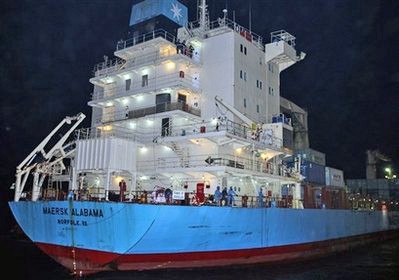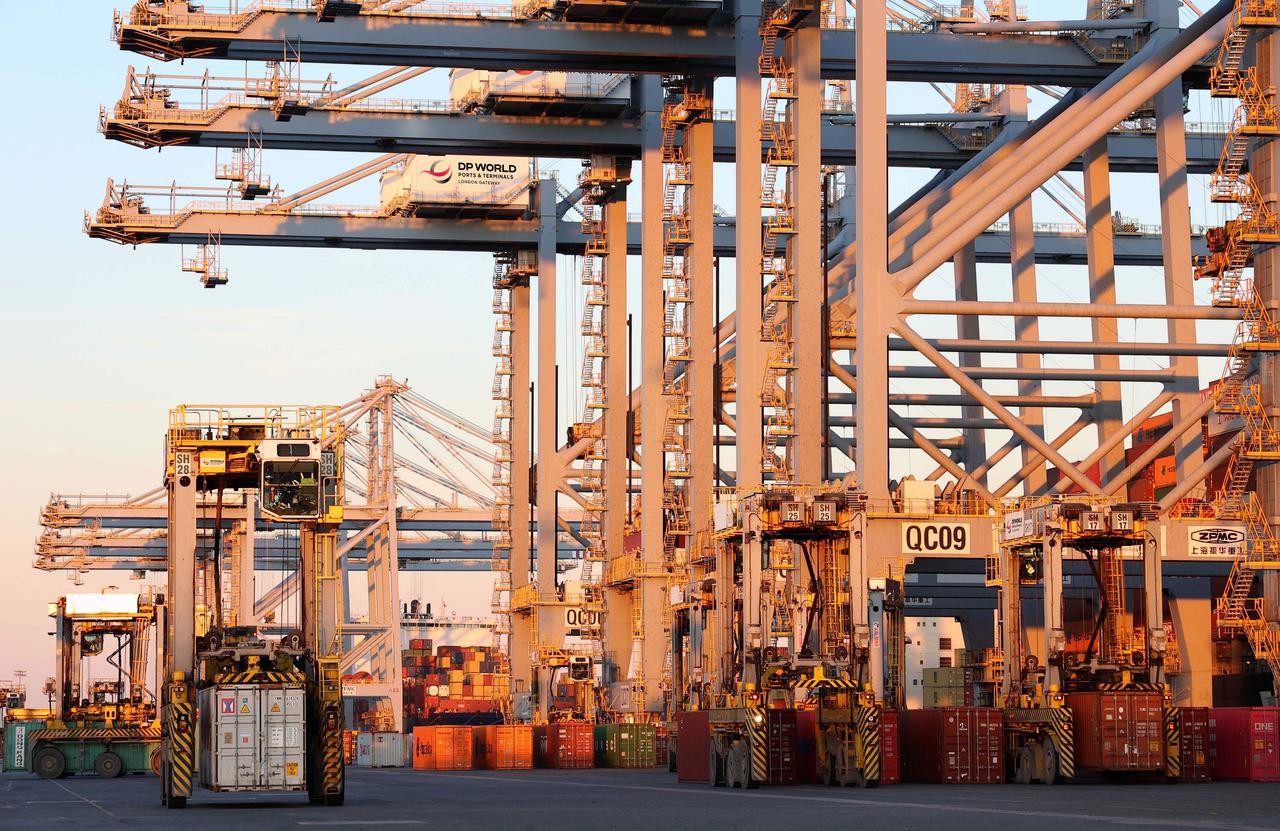File photo of Maersk Alabama
Isaac Arnsdorf
Oct. 9 (Bloomberg) — The ship in Tom Hanks’s new movie is part of a national-security program that’s now in jeopardy because of the government shutdown.
The U.S. subsidizes a fleet of 60 ships — including the Maersk Alabama, whose 2009 hijacking is depicted in the film “Captain Phillips” — to fly the country’s flag in international trade and carry supplies for the military. The program has no funding and will have to downsize if Congress doesn’t act within 60 days, Kevin Tokarski, associate administrator for national security at the Maritime Administration of the Department of Transportation in Washington, said yesterday by phone.
The Maritime Security Program is another victim of the political deadlock that furloughed federal employees, shuttered national parks and threatens to push the U.S. into default on its debt. Without government subsidies, the ships that carried 90 percent of the goods for U.S missions in Iraq and Afghanistan since 2009 may not be available when the military needs them, according to Maersk Line Ltd., a division of the world’s largest shipping line.
“In times of conflict or national emergency, you want to be assured and have the full faith and confidence that transportation needs are carried out by American mariners on American-flagged vessels,” Clint Eisenhauer, vice president of government relations for Maersk in Arlington, Virginia, said by phone yesterday. “Because of our budget impasse, we find ourselves in a place where, despite all that, the program is in severe jeopardy.”
‘Deep Recession’
President Barack Obama said at a White House press conference yesterday that the U.S. economy risks a “very deep recession” if Congress doesn’t raise the $16.7 trillion debt ceiling. Lawmakers in Congress began taking the first tentative steps toward resolving the standoff as both sides explore actions that will be needed to end the week-old shutdown and raise the debt limit before U.S. borrowing authority lapses on Oct. 17.
Yields on one-month U.S. Treasury bills jumped to the highest since 2008 and the Standard & Poor’s 500 Index tumbled the most since August yesterday amid the budget impasse.
Labor Rules
U.S. ships cost more to operate because of environmental and labor rules, so they need a stipend to compete internationally. Most vessels are registered in countries such as Panama, Liberia and the Marshall Islands, known as flags of convenience. Without the Maritime Security Program, ships may have to change their registration from the U.S., Kevin Speers, a Norfolk, Virginia-based spokesman for Maersk Line, said by phone yesterday.
The Department of Defense didn’t return an e-mail seeking comment.
While the ships mostly carry commercial cargoes, they ply routes tailored to the military’s needs, Speers said. Cargoes include beds and blankets, vehicles and meals for soldiers, as well as humanitarian aid, according to Eisenhauer.
The Maersk Alabama, for example, shuttles food aid between the Middle East and Africa and has on-board equipment to unload in ports without cranes, Speers said.
When Somali pirates attacked the ship in April 2009, the 53-year-old captain, Richard Phillips, agreed to go with them to spare the crew. After five days in captivity, he was rescued from a lifeboat in the Indian Ocean as Navy snipers killed three pirates with three shots.
Maersk Line is the largest operator of ships in the Maritime Security Program, with 19, according to the Maritime Administration’s website.
Below Budget
Funding was already $12 million below budget before mandatory across-the-board budget cuts known as sequestration took effect earlier this year, Speers said. The law creating the program allows for 60 days before it has to be reduced to fit the level of funding, which, under the current shutdown, is zero, Tokarski said.
“It’s almost beyond comprehension for us in the industry to think that what Somali pirates couldn’t take away the U.S. Congress might,” Don Marcus, president of the International Organization of Masters, Mates & Pilots, a Linthicum Heights, Maryland-based union representing U.S. mariners, said by phone. “It leaves not only the merchant fleet but also the national defense and our economy in serious straits.”
Copyright 2013 Bloomberg.

 Join The Club
Join The Club











